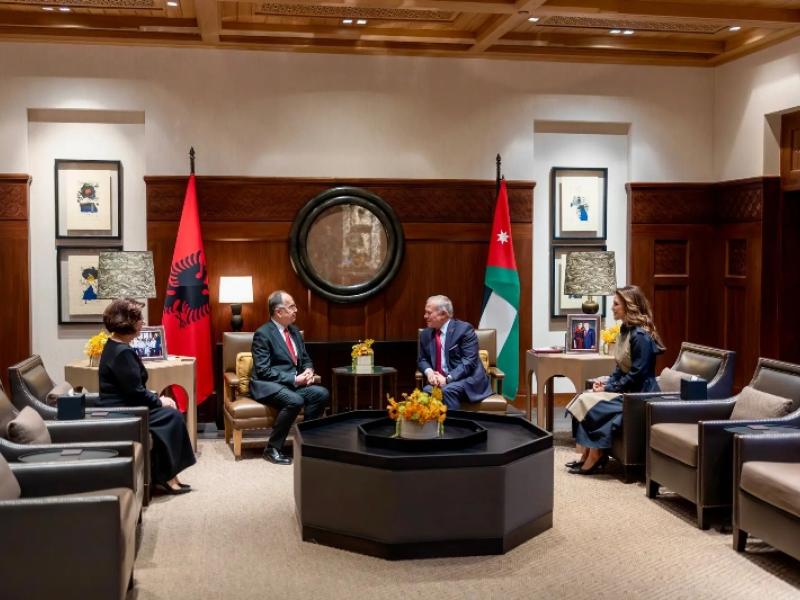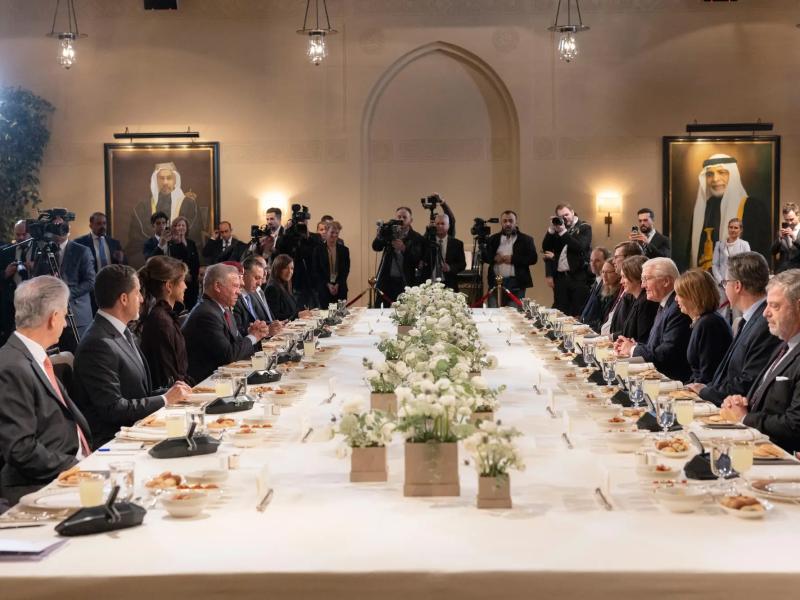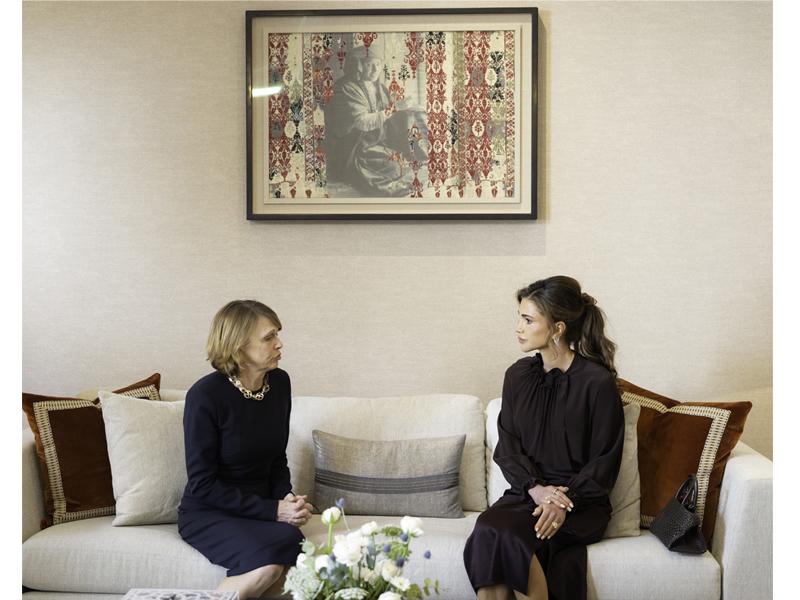(Office of Her Majesty, Press Department – Davos) As the humanitarian conditions continue to worsen in Gaza, Her Majesty Queen Rania Al Abdullah spoke out about the situation while in Davos, Friday, where she urged the international community "to reach out, to make sure that we deal with the humanitarian issues, to make sure that we take care of the women and children who have nothing to do with this political process in the first place. Because no matter how they cloak it, this is collective punishment to an entire population and it is a violation of international law." Highlighting the humanitarian crisis was the Queen's main message in Davos. During an interview with CNN’s Becky Anderson, Queen Rania said, "I think it is clear to everybody that neither blackages nor bombs are going to bring peace to the region. And I think what we are seeing today is adding another layer of grievances to a situation that has been burdened with tragedy, destruction and death and heartache. The humanitarian situation is extremely worrying at the moment.” To better help the situation, the Queen said the international community could play a vital role. “We have to lift the siege, we have to stop the military aggression and aid agencies have to be allowed to work there because by all accounts hearing from them the humanitarian situation is extraordinarily terrible there. So aid needs to be allowed into the area. But most importantly, the real peace will only come once the political situation is settled. And we all know what needs to be done, but the real question is when will the international community find the will power and the sincerity of spirit to finally set right the course of this conflict – to really put it on a path to peace – once and for all.” Queen Rania has continued to highlight the plight of the Palestinians. Earlier this week, the Queen, after visiting injured Palestinians being treated in Jordan, said, “People there are being deprived of so many of the necessities that we take for granted… and I fear that this situation can get worse. We need to mobilize, and coordinate our efforts to collect aid to send to Gaza.” Queen Rania reminded the audience at the Millennium Development Goals (MDGs) Call to Action about the humanitarian side of the conflict as she stood alongside prominent world figures including British Prime Minister Gordon Brown and UN Secretary General Ban Ki Moon, and fellow humanitarians Bill Gates, and Bono where they all urged the world’s governments to recommit to achieving the MDGs by 2015. “This week, Gaza was plunged into further darkness and despair. Gaza’s children are crying out for heat, light, food, safety, medical care, and most of all peace. Already, they have lived through more horror, fear, and heartbreak than we can possibly imagine. Broken promises will not help them,” she said. “It is time to move from promise to performance,” said the Queen as she highlighted the tragic statistics of the millions of girls out of schools and hundreds of thousands of mothers who are still dying each year in childbirth. “It is an emergency. It is unfolding all around us. And it needs our attention right now,” urged the Queen. Also in Davos, the Queen attended a working session titled “Girls Count”, on Thursday. Her Majesty spoke passionately about the need to focus on girls’ education and outlined strategic goals countries could follow to ensure getting back on track in achieving some of the MDGs. From advocating to investing, the Queen said “there are many immediate, concrete steps that leaders in every sector can take. Governments are responsible for creating the legal environment that treats girls fairly – and ensuring that social services go to girls as well as boys. The donor community can focus reproductive and sexual health programs on girls, including efforts to prevent HIV and help ensure girls have opportunities beyond primary school. Private employers can improve and highlight economic opportunities for young women, so that parents see the benefits of investing in their daughters’ education. And civil society organizations working at the grassroots can help change traditional attitudes towards girls, even as they advocate for more appropriate government policies.” Her Majesty also attended a session on Corporate Global Citizenship in the 21st Century where she addressed the role of companies in the Arab world to create global citizens and why doing good has a positive effect on a company’s bottom line.



